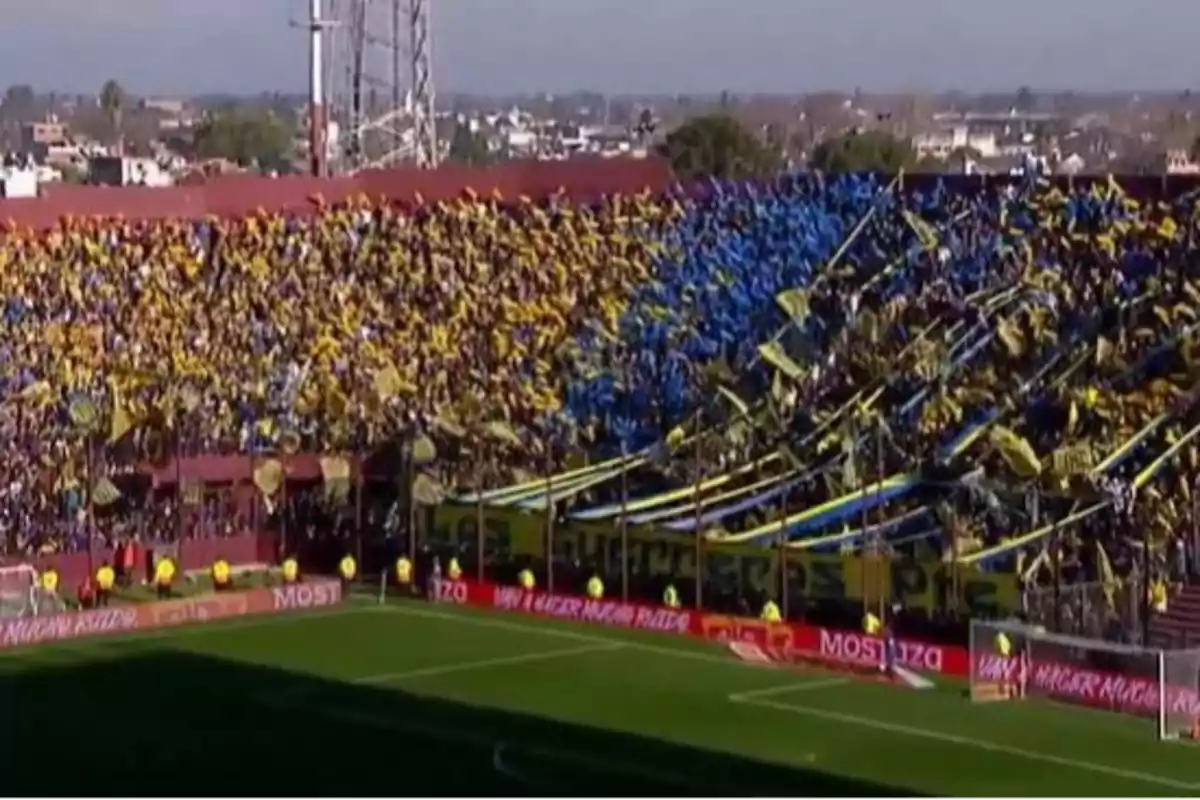
Thanks to Milei's government, visiting fans have returned to Argentine soccer.
The highly anticipated return took place next weekend in the match between Lanús and Rosario Central
On a historic day for Argentine soccer, 7,000 fans of Rosario Central were able to support their team as visitors at Lanús stadium, officially marking the return of visiting fans to the Primera División.
This reopening, which for years had seemed impossible due to violence and institutional disorganization, was made possible thanks to the security policy implemented by the Government of Javier Milei, with the Tribuna Segura program as its central axis.
The measure was announced a few days ago by the Argentine Football Association (AFA) at its Ezeiza complex, with the presence of its president, Claudio “Chiqui” Tapia, who described the moment as “an extremely important day for Argentine soccer.”

However, the true driving force behind this decision was Milei's Government, which, through its Tribuna Segura program coordinated by the National Security Ministry led by Patricia Bullrich, laid the groundwork for stadiums to once again become a safe and family-friendly gathering place.
The libertarian administration has been working systematically to guarantee order at sporting events. Since December, Tribuna Segura has screened over 4 million people at 1,328 matches, detecting 1,166 people with arrest warrants and issuing more than 40 administrative restrictions. These figures reflect firm and effective management against hooligans and those who generate violence.
The experience at Lanús stadium was a true success. Rosario Central was able to bring 7,000 supporters without any incidents or disturbances being reported.
“The neutral fans model doesn't benefit soccer or security agencies,” stated Tapia, in a clear reference to measures implemented during previous governments. Today, thanks to the work of the current administration, a new paradigm is beginning to take shape.
The return of visiting fans not only brings more color and passion to the stands, but also represents a key step toward normalizing Argentine soccer after years of violence, neglect, and complicity with marginal sectors. In this regard, Javier Milei's administration makes a difference.
More posts: